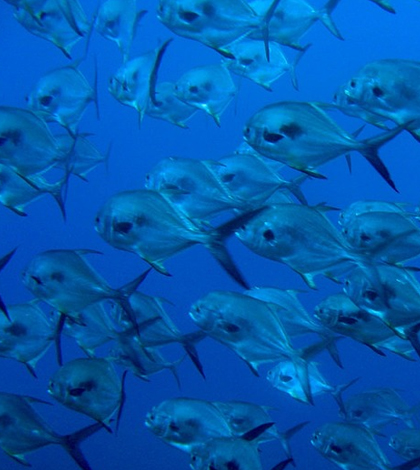Carbon Dioxide Levels May Rise Enough To Disorient Fish By Mid Century

Researchers are investigating how carbon dioxide levels are affecting marine life. (Credit: Public Domain)
Continued global warming and rises in carbon dioxide levels have many effects on marine life, including a condition called hypercapnia which renders fish disoriented and seemingly “intoxicated,” unable to navigate correctly or determine where predators are. Hypercapnia occurs when carbon dioxide levels reach 650 parts per million or higher.
According to a release from the University of New South Wales, hypercapnia may occur in fish in many carbon dioxide hotspots in the world’s oceans by 2100, including areas in the Southern, Pacific and North Atlantic Oceans. The UNSW researchers utilized a database containing 30 years’ worth of carbon dioxide data from the world’s oceans to estimate where and when hypercapnia might occur around the globe.
The data came from several international program efforts. A numerical method was also created to indicate the natural high and low carbon dioxide levels due to seasonal fluctuations. These fluctuations were predicted to increase by a factor of 10 in some areas if carbon dioxide levels continue to rise as they do currently.
Top image: Researchers are investigating how carbon dioxide levels are affecting marine life. (Credit: Public Domain)




0 comments